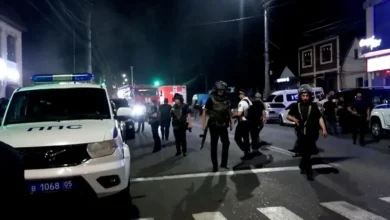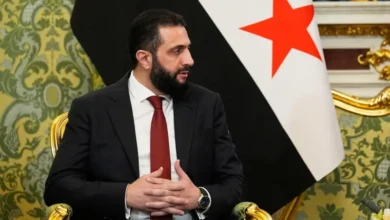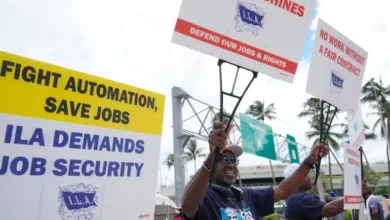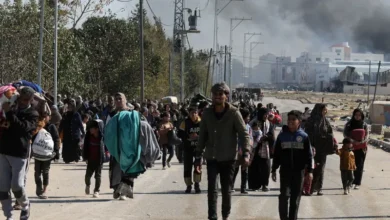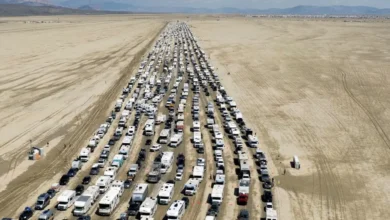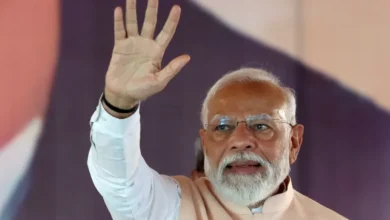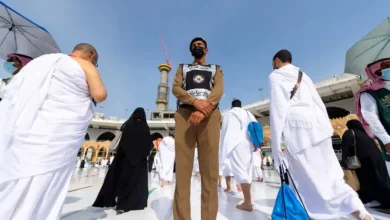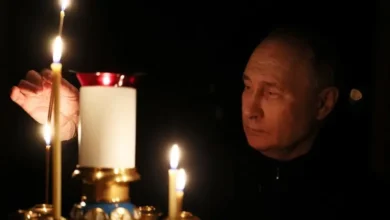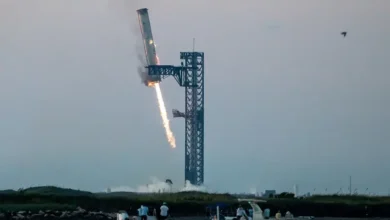Israel’s attacks on Lebanon live: Death toll in Beirut strike rises to 12
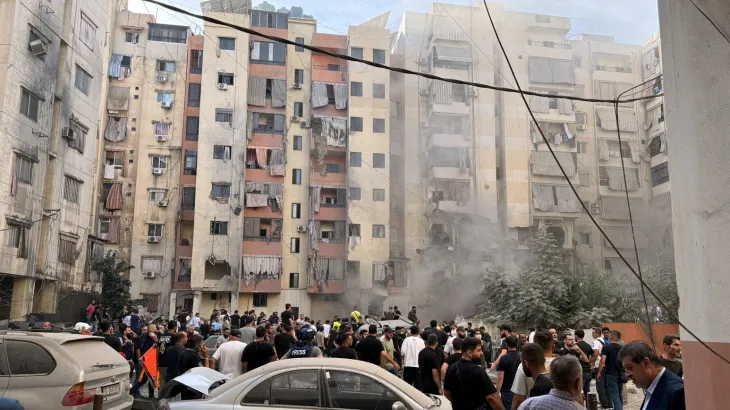
- At least 12 people have been killed and 66 others injured in an Israeli attack on the southern suburbs of Beirut, Lebanon’s Health Ministry says.
- Lebanese health authorities say children are among the victims of the attack on a building in the Dahiyeh area.
-
Israel disregarding ‘human, legal and ethical’ norms: Lebanon PM
Najib Mikati says the targeting of a densely populated area of Beirut proves that Israel is proceeding with a campaign of mass killings in Lebanon.
He added that Israel is “disregarding human, legal and ethical” norms in its attacks.
“This new aggression is for the consideration of the international community that is silent to the abuses of human rights, justice and laws,” Mikati said in a statement.
Biden says working to return people in Lebanon, Israel to their homes
Speaking to reporters amid the rising Israel-Hezbollah tensions, the US president has said he wants to “make sure that the people in northern Israel as well as southern Lebanon are able to go back to their homes, to go back safely”.
For months, critics have urged Biden to apply more pressure on Israel – the US’s top Middle East ally – to end its war on the Gaza Strip, which they say is critical to avoiding a wider regional war.
The Biden administration has remained a staunch backer of Israel during the war.
Israel has a long history of targeted assassinations
Rami Khouri at the American University of Beirut describes today’s attack as a continuation of Israeli assassinations targeting the heads of Palestinian and other Arab groups.
Israel “has been killing Palestinian political and military leaders since the 1980s when the [Palestine Liberation Organization] first became powerful and significant and resistant to what Israel was doing,” Khouri told Al Jazeera.
“It’s been killing senior members of the PLO and Hamas and Hezbollah, Iranian senior officials and scientists, so this is a strategic policy that Israel has used,” he said.
Khouri added that assassinations were also used by Zionist groups against potential rivals before the Israel was created in 1948.
Israel suggests it is altering the rules of engagement, risking war
Israeli Defence Minister Yoav Gallant has said that “even in Dahiyeh in Beirut – we will continue to pursue our enemy in order to protect our citizens.”
“The sequence of actions in the new phase will continue until our goal is achieved: the safe return of the residents of the north to their homes,” he said in a social media post.
Hamas condemns Beirut attack
The Palestinian group has called the air raids on the densely populated neighbourhood of Dahiyeh a “heinous terrorist aggression”.
Hamas also said in a statement that the Israeli attack is an “escalation” of Israel’s “crimes” in Lebanon.
‘Everyone is scared’: Beirut shaken by deadly attacks
Diana, a woman who has family in Beirut’s southern suburbs, says “her heart stopped” when she heard the news of the Israeli attack there.
“Dahiyeh does not only concern people who live there,” she told Al Jazeera, referring to a neighbourhood on the southern outskirts of the Lebanese capital.
“For example, my husband and I don’t live there, but he goes there often for work, so when what happened happened, my heart stopped in its place. Only when he replied to me, I started calming down a bit, and I started to cry.”
She said “everyone is scared and there are a lot of people reported missing.”
“Everyone is afraid. My uncle’s wife [who lives in the southern suburbs] called me crying. She said, ‘I can’t keep doing this. I’m packing my clothes to leave.’”
Diana, a woman who has family in Beirut’s southern suburbs, says “her heart stopped” when she heard the news of the Israeli attack there.
“Dahiyeh does not only concern people who live there,” she told Al Jazeera, referring to a neighbourhood on the southern outskirts of the Lebanese capital.
“For example, my husband and I don’t live there, but he goes there often for work, so when what happened happened, my heart stopped in its place. Only when he replied to me, I started calming down a bit, and I started to cry.”
She said “everyone is scared and there are a lot of people reported missing.”
“Everyone is afraid. My uncle’s wife [who lives in the southern suburbs] called me crying. She said, ‘I can’t keep doing this. I’m packing my clothes to leave.’”
Who is Ibrahim Aqil?
Aqil, also known as Tahsin, has been a key Hezbollah operative since the group’s inception in the early 1980s.
Like most senior Hezbollah military officials, Aqil has been a shadowy figure, making no public appearances or statements.
According to the US State Department, he serves on the group’s most senior military body – the Jihadi Council.
Last year, the US issued a $7m reward for information leading to his identification or capture. Washington accused him of involvement in a suicide bombing against the US marine barracks in Beirut in 1983, which killed 241 Americans during the Lebanese Civil War.
In 2019, the US labelled him a “specially designated global terrorist”.
While the Lebanese group does not publicise the rank of its members, the Israeli military said Aqil was the head of the Radwan Unit, Hezbollah’s elite force.
